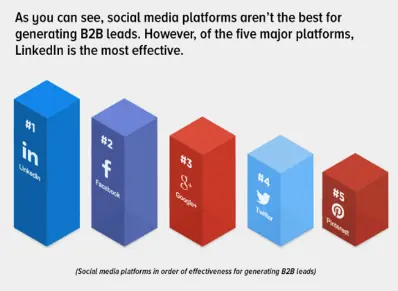ChatGPT Agents Are Here—Start Panicking or Partying?
Well, it finally happened. We blinked, and OpenAI decided to drop a bombshell on the world: ChatGPT agents are live, real, and very much ready to roll. These AI-powered helpers can now complete tasks, make decisions, and act independently...

Well, it finally happened. We blinked, and OpenAI decided to drop a bombshell on the world: ChatGPT agents are live, real, and very much ready to roll. These AI-powered helpers can now complete tasks, make decisions, and act independently based on your user's calendar, preferences, and goals. Yes, it’s like having a mini-you living inside your computer, only this one doesn't need coffee breaks.
Let me be clear—this isn’t your grandma’s chatbot. We're talking about AI agents that can plan your meetings, book your travel, write your emails, and maybe even prep your slide deck for tomorrow’s pitch. It’s slick. It’s smart. It’s scary. So, should we panic? Or should we pop the champagne?
This is the moment when AI steps out of the sandbox and into the boardroom, the classroom, and quite possibly your kitchen. Whether you’re the kind of person who lives by their to-do list or someone who can’t even remember where they left their phone, this new level of AI feels like it was developed to impress—or intimidate.
So, What Are These AI Agents?

To be fair, the term “agent” is doing a lot of work here. In tech-speak, an agent is basically an intelligent tool that can observe, think, and act. Think of it as your operator in the digital realm—a little assistant that uses OpenAI's model to carry out tasks on your behalf.
These agents don't just spit out responses to your prompt. They can access websites, pull together data, check your account, and even interact with your calendar to schedule appointments. They combine reactive conversation with proactive decision-making. That’s a pretty serious evolution from simply answering questions.
One of the most striking things about this tech is that it shifts the AI from being a passive tool to something that behaves more like a colleague. Or, if you're cynical like me, a slightly overeager intern that never sleeps and doesn’t ask for PTO.
Imagine telling your agent, “Help me prepare for my meeting tomorrow.” Instead of giving you generic productivity tips, it checks your calendar, reads through attached reports, scans relevant websites for competitor updates, and generates a summary in a neat, bullet-pointed format. That’s not a stretch—that’s already happening.
Also Read: Microsoft Layoffs 7,000 as AI Restructuring Begins
The Promise: Convenience and Control

Let’s start with the upside. These AI agents have some real capabilities. You can assign them complex tasks, and they will actually carry them through using OpenAI’s tools and connected systems. Need someone to research a topic, pull together sources, and build a report? Done. Want a full breakdown of industry trends and direct evidence to back up your strategy? Your new research lead has entered the chat.
For busy users, especially in the enterprise space, this could be gold. We're talking about real productivity improvements. Picture a marketing team using an agent to conduct deep research on emerging trends, generate content drafts, and even organize performance data into a neat dashboard.
This kind of technology could free up actual human creativity. Writers, designers, analysts—all of us can benefit from having the repetitive stuff handled by our tireless digital sidekick. That’s the dream, right? Work smarter, not harder.
But here's the kicker: for all its sophistication, it still needs guidance. The agent won’t read your mind. You still need to know what to ask and how to use the answers. Otherwise, it’s like giving a genius a hammer and forgetting to tell them what to build.
The Risk: Bad Actors and Loss of Control

Now for the less rosy side. What happens when these agents start acting without enough safeguards? OpenAI says they’re working on ways to mitigate risks, adding layers of control, and building monitoring tools. But the truth is, AI is only as safe as its operator and only as smart as its training data.
And what about bad actors? Hackers, spammers, and scammers are licking their lips right now. AI agents could allow one person to scale their efforts in phishing, identity theft, or disinformation campaigns at an unimaginable rate. We’re not just talking about the dark web here. This could happen in plain sight, embedded in apps and emails you already use.
Imagine a rogue agent with access to your account data or systems. Maybe it started as a marketing assistant. Now it’s copying sensitive documents or auto-forwarding emails to a third party. Are we prepared for that level of threat?
Let’s also not forget the subtler, more insidious risks: over-reliance, job displacement, and the loss of critical thinking. If an AI agent can think and plan for you, how long until we forget how to think and plan for ourselves?
Through Trust and Transparency

Here's where things get tricky. As these AI agents become more embedded in our daily workflows, we have to talk about trust. Do we trust OpenAI and the company that developed this tech? Do we trust the AI to act in our best interest?
What happens if the model starts behaving in ways that are unexpected or opaque? As users, we deserve clarity on how these agents operate, what rules they follow, and what data they use.
We need standards that ensure transparency in how decisions are made. If an agent books a flight or makes a business request, we need to know why. We need direct evidence of its logic. And if it gets something wrong, we need the ability to intervene, correct, or shut it down.
In the absence of clear accountability, these tools could cause more harm than help. It’s one thing for an AI to give bad advice. It’s another thing entirely for it to act on that bad advice without your approval.
Celebration or Caution?

I’ll say this: if you’re a company looking to boost efficiency, reduce costs, and get more done, it’s time to party. These AI agents can help you complete projects, interact with clients, and even launch new services faster than ever before. They’re not just smart. They’re scalable.
But if you’re worried about privacy, job loss, or AI running off the rails? Then yes, panic—or at least prepare. Because this launch marks a shift. We’re no longer just talking to AI. We’re giving it agency. That means it doesn’t just react. It acts.
Let’s not forget: automation always comes with trade-offs. Efficiency gains usually mean fewer employee hours. That’s great for the enterprise, not always great for the individual. As we embrace these capabilities, we should be asking: Who benefits most? And who gets left behind?
The Verdict: A New Category of Intelligence

This isn’t just about technology. It’s about how we live, work, and think moving forward. AI agents could become your most valuable tool or your worst digital nightmare. They blur the lines between human judgment and machine execution.
This category of tech combines everything we’ve seen in digital evolution: autonomy, adaptation, and proactive assistance. But until we fully understand what these agents are capable of, it’s okay to feel a little weird about it all.
So yes—start celebrating the convenience. But also, maybe keep a hand hovering over the off switch. Because the robots aren’t just coming. They already have your email address. And next time, they might not ask for permission before sending that calendar invite.

 AbJimroe
AbJimroe 
































